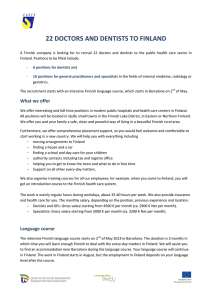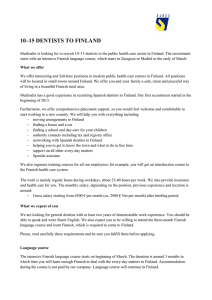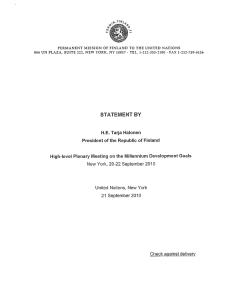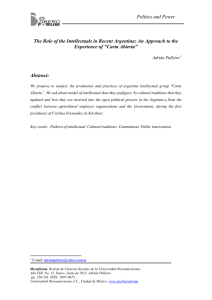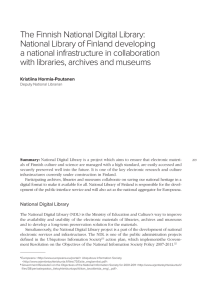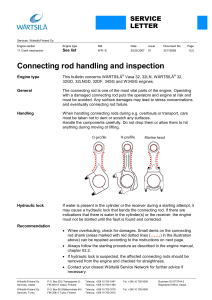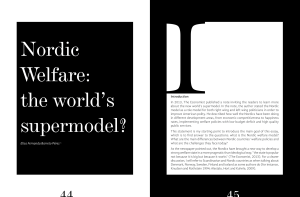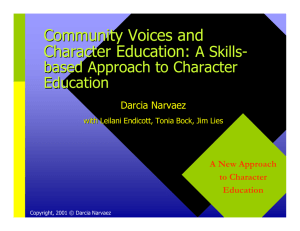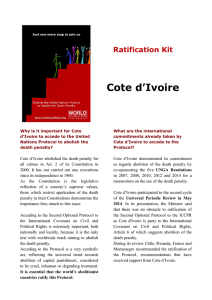`We Nordic countries will not form a bloc within the EU` from El País
Anuncio
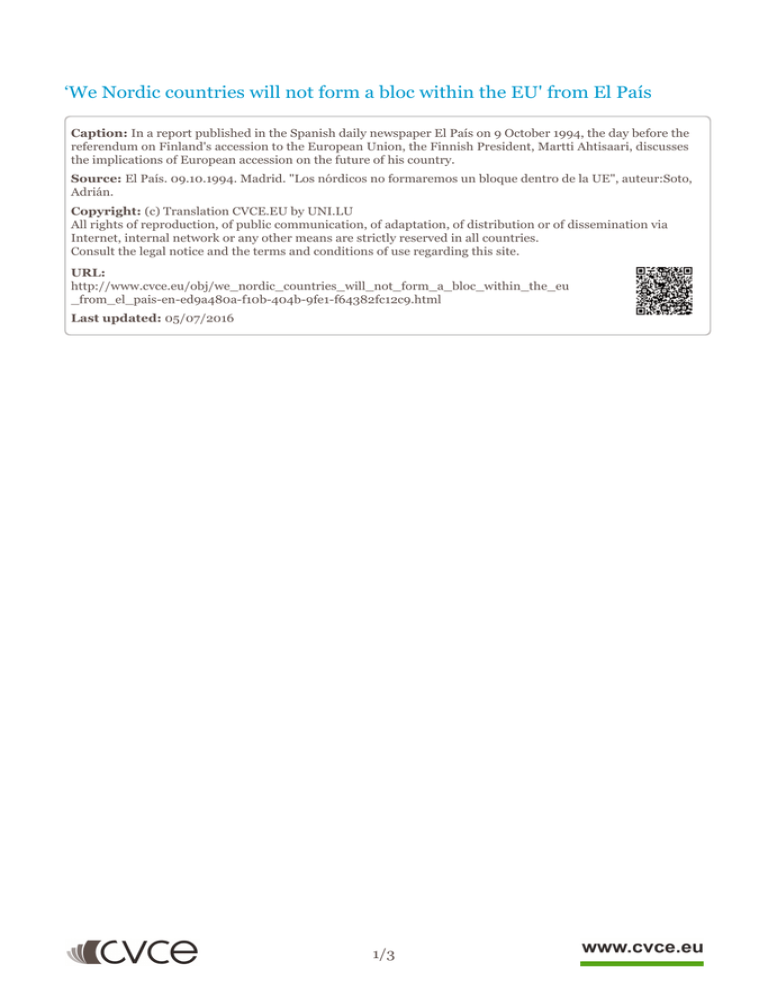
‘We Nordic countries will not form a bloc within the EU' from El País Caption: In a report published in the Spanish daily newspaper El País on 9 October 1994, the day before the referendum on Finland's accession to the European Union, the Finnish President, Martti Ahtisaari, discusses the implications of European accession on the future of his country. Source: El País. 09.10.1994. Madrid. "Los nórdicos no formaremos un bloque dentro de la UE", auteur:Soto, Adrián. Copyright: (c) Translation CVCE.EU by UNI.LU All rights of reproduction, of public communication, of adaptation, of distribution or of dissemination via Internet, internal network or any other means are strictly reserved in all countries. Consult the legal notice and the terms and conditions of use regarding this site. URL: http://www.cvce.eu/obj/we_nordic_countries_will_not_form_a_bloc_within_the_eu _from_el_pais-en-ed9a480a-f10b-404b-9fe1-f64382fc12c9.html Last updated: 05/07/2016 1/3 Interview ‘We Nordic countries will not form a bloc within the EU’ Martti Ahtisaari, President of Finland Adrián Soto — Helsinki Seven months into his term of office, the President of Finland, Martti Ahtisaari, 57, has placed himself at the head of the process for his country’s accession to the European Union (EU), although he has some misgivings about the Maastricht timetable. Next Sunday, four million Finns will decide in a referendum whether to join the EU. The latest surveys show that 48 % will vote yes, 28 % no and that 24 % are undecided. President Ahtisaari received El País at his official residence, Mäntyniemi, which is located on a breathtaking bay not far from the centre of Helsinki. Question. Will Finland’s accession to the EU lead to any changes in your foreign policy? Answer. Recently, Finnish foreign policy has been much the same as the EU’s. In the future, new strands will be added such as the continuation of the process of enlargement and the Common Defence Policy, on which we shall have to take a position. Despite regional conflicts, the Europe in which we now live is safer and more stable than the Europe of the Cold War. Q. Do you think that monetary union will be established in December 1999? A. I think that the process of monetary union will be much longer and slower than anticipated. Q. Finland currently has 20 % unemployment and is experiencing a serious economic recession. What benefits do you hope to gain from the EU? A. Being a Member State of the EU will guarantee us access to extensive markets, and we shall be able to play a part in Community economic policy. We shall also be able to benefit from the regional funds. The EU has shown an understanding attitude towards us and has promised us a sensible transitional period as well as specific aid for our agricultural sector. Q. Do you think Finland can save its welfare state? A. Yes. The majority of Finns want to maintain it, and the political will of a nation for such an undertaking is vitally important. The foundations of the welfare state must be preserved. It would be much more difficult for us to maintain the foundations of our system outside the EU. Q. Do you think that a Nordic bloc will emerge within the EU? A. No. This issue has been discussed at various meetings of the Nordic countries, and we are convinced that the mindset behind the way we work must be much broader than that. We Nordic countries have many common interests, but I think that the concept of a bloc belongs to the past. Q. Is a two-speed Europe, with Finland on the faster train, a possibility? A. I think that that concept is merely part of the internal EU debate. Europe cannot be an à la carte menu. Q. Finland’s eastern border marks the striking boundary between a developed country and an underdeveloped Russian region. What consequences could that have for Finland? A. That difference is the reason why our eastern regions are strongly in favour of the EU. I have seen for myself how anxious the authorities in Saint Petersburg are for Finland to accede to the EU. They could benefit, 2/3 too. Nowadays, increasing numbers of well-to-do Russians are coming to shop in our eastern cities. We also have many businesses which have made investments on the other side of the border. The economic development of those areas is a safeguard for our national security. Q. What is your opinion of the Baltic countries’ policies towards their Russian minorities? A. Once a country has been accepted as a member of the international community, it must observe basic democratic principles. There must be no exceptions to that rule. Q. Do you think, as a former senior official at the United Nations, that the Security Council should be enlarged? A. In principle, it ought to be enlarged to include Germany and Japan. They are the countries which make the most significant economic contributions. As far as other potential candidates are concerned, for instance India or a Latin American country, that is a matter for a process of discussion which must continue. Q. Do you think that the recent proposal put forward by the UN Secretary-General, Boutros Boutros-Ghali, that the organisation should establish an active armed branch to intervene in national or regional conflicts is feasible? A. It is a proposal worthy of study. I see the plan as a small force of about 5 000 men who would have to be backed up by the countries which can provide them with logistical support. The participants should be under the direct command of the Secretary-General. It would be able to act rapidly, since it would not be subordinate to long-winded national procedures. Published in the International section of the daily newspaper El País on 9 October 1994. Author: Adrián Soto. 3/3

